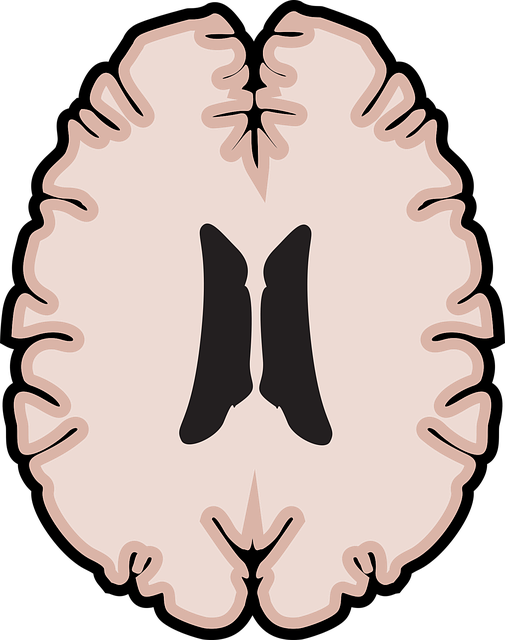Colorado Springs' mental health policies significantly impact the well-being of diverse communities, with access to anxiety therapy services as a pressing issue. Nearly 18% of adults in Colorado Springs have anxiety disorders, mainly GAD, affecting productivity and relationships. Challenges include socio-economic barriers, lack of affordable services, and policy gaps focusing on preventive strategies over crisis intervention. Initiatives like Mind Over Matter's Stress Management Workshops create supportive environments. Advocacy aims to expand services, educate the community, and promote policies prioritizing mental well-being through data, research, and personal narratives, driving meaningful changes in Colorado Springs anxiety therapy accessibility.
“Mental health policy plays a pivotal role in shaping the well-being of communities, especially in areas like Colorado Springs, where anxiety disorders prevalent. This comprehensive analysis delves into the impact of current policies and identifies gaps hindering access to effective mental health services. With a focus on Colorado Springs anxiety therapy, we explore statistical insights into regional mental health trends. The article further advocates for policy reforms, presenting strategic approaches to enhance mental well-being and improve support systems for residents in need.”
- Understanding Mental Health Policy and Its Impact on Colorado Springs Communities
- The Prevalence of Anxiety Disorders in the Region: A Statistical Analysis
- Current Mental Health Services and Access in Colorado Springs
- Gaps and Challenges in the Existing Policy Framework
- Advocacy Strategies for Effective Mental Health Policy Reform
Understanding Mental Health Policy and Its Impact on Colorado Springs Communities

In Colorado Springs, mental health policy plays a pivotal role in shaping the well-being and resilience of its diverse communities. Access to comprehensive anxiety therapy services is a pressing issue, with many residents facing barriers to receiving the care they need. The impact is far-reaching, affecting not just individuals but also families and the broader social fabric. Understanding these policies is crucial to identifying strategies that promote mental wellness and mitigate the burden of stress-related disorders.
Mental health initiatives in Colorado Springs have been evolving, with a growing emphasis on evidence-based practices and community engagement. Organizations like Mind Over Matter Principles are at the forefront, offering innovative solutions such as Stress Management Workshops. These efforts contribute to creating a supportive environment where mental wellness is prioritized. By addressing anxiety therapy access and implementing effective policy changes, Colorado Springs can move towards a more resilient and healthy future for its citizens.
The Prevalence of Anxiety Disorders in the Region: A Statistical Analysis

The prevalence of anxiety disorders has been a growing concern in Colorado Springs and across the region. According to recent studies, nearly 18% of adults in Colorado Springs have received a diagnosis of an anxiety disorder, with Generalized Anxiety Disorder (GAD) being the most commonly reported. These statistics underscore the urgency for accessible and effective mental health services, particularly focusing on Colorado Springs anxiety therapy. The impact of these disorders extends beyond individuals, affecting productivity, relationships, and overall quality of life in the community.
Risk assessment and management planning for mental health professionals are critical to addressing this issue. By implementing proactive strategies, such as encouraging positive thinking and early intervention, healthcare providers can mitigate the severity of anxiety symptoms. This approach, coupled with comprehensive risk management planning, ensures that individuals struggling with anxiety receive the support they need while promoting a healthier, more resilient community in Colorado Springs.
Current Mental Health Services and Access in Colorado Springs

Colorado Springs, like many cities across the globe, grapples with providing adequate mental health services to its residents. Access to quality care is a significant concern, particularly for individuals seeking Colorado Springs anxiety therapy. The local landscape offers a mix of traditional and alternative treatments, but disparities exist based on socio-economic factors, geographic location, and insurance coverage. Many residents face challenges in finding affordable, specialized therapists, leading some to opt for self-care routine development as a first line of defense for better mental health.
Mindfulness meditation has emerged as a popular coping mechanism, backed by research that demonstrates its effectiveness in stress reduction and depression prevention. However, not everyone can benefit from these practices without guidance or professional support. Therefore, advocacy efforts focus on expanding access to mental health services, promoting community education, and encouraging policies that prioritize the well-being of all Colorado Springs residents.
Gaps and Challenges in the Existing Policy Framework

The current policy landscape for mental health support in places like Colorado Springs Anxiety Therapy faces significant gaps and challenges. Despite increasing awareness of mental health issues, many existing policies fail to address the full spectrum of needs, especially when it comes to integrating comprehensive emotional well-being promotion techniques for diverse populations. The focus often remains on crisis intervention rather than preventive measures, leaving a void in resources dedicated to fostering mental wellness from an early age.
These policy shortcomings are particularly evident in areas such as access to quality care, insurance coverage, and stigma reduction strategies. For instance, while initiatives promoting positive thinking and emotional well-being are gaining traction, their implementation across different sectors remains inconsistent. Addressing these challenges is crucial to ensuring that policies not only provide temporary relief but also foster a culture that prioritizes and sustains mental wellness for all individuals, regardless of background or location.
Advocacy Strategies for Effective Mental Health Policy Reform

Advocacy plays a pivotal role in shaping mental health policies and driving much-needed reform. Effective advocacy strategies are essential to ensure that policymakers understand the complexities of mental health issues, such as anxiety disorders prevalent in Colorado Springs therapy settings. One powerful approach is to leverage data and research to back up arguments, showcasing the impact of inadequate mental health services or the potential benefits of proposed reforms. This can involve collating statistics on wait times for therapy, access to specialized treatments, and successful outcomes associated with specific interventions.
Additionally, engaging community stakeholders, including mental health professionals, support groups, and individuals with lived experiences, is crucial. Their personal stories and collective voices can humanize the issue, fostering empathy among decision-makers. Organizing awareness campaigns, public discussions, and meetings with policymakers can help advance the cause of positive thinking and mental health education programs design. By combining scientific evidence with compelling narratives, advocates can drive meaningful policy changes, ultimately improving access to effective stress reduction methods for those seeking therapy in Colorado Springs or any other community.
In conclusion, this analysis highlights the pressing need for comprehensive mental health policy reforms in Colorado Springs, particularly addressing the growing prevalence of anxiety disorders. By identifying gaps and challenges within the existing framework, we can advocate for evidence-based strategies that enhance access to quality mental health services, including anxiety therapy. Through collective efforts, policymakers, healthcare providers, and advocates can work together to create a more resilient and supportive environment for the well-being of Colorado Springs communities. This is crucial in ensuring that individuals struggling with anxiety disorders receive the necessary care and support they deserve.














